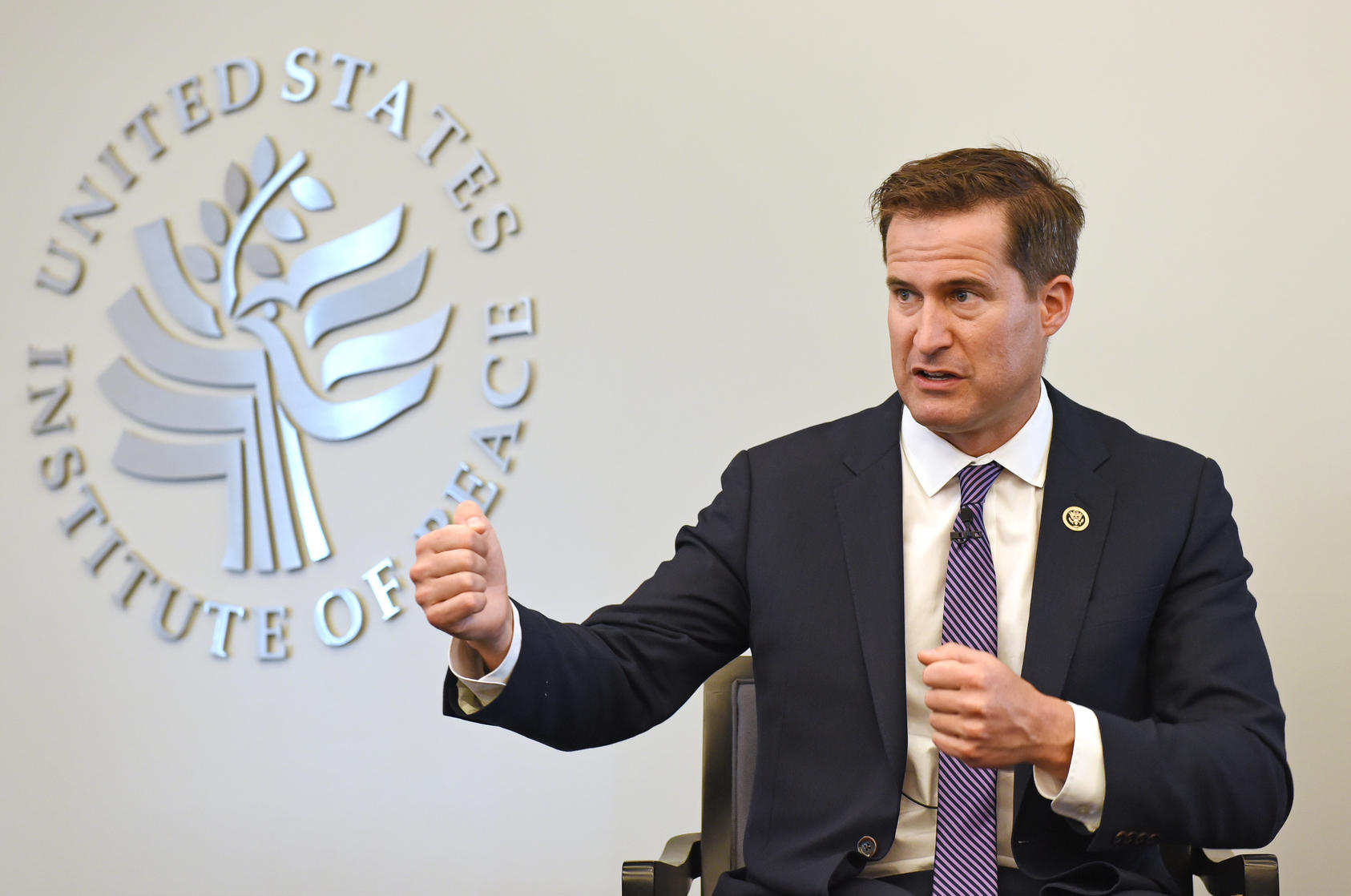How to Stabilize Iraq: A Marine in Congress Speaks
Seth Moulton, Armed Services Committee Member, on a Study of U.S. Policy
Read the Event CoverageAs U.S. troops help Iraqi armed forces in their offensive against ISIS militants, Massachusetts Congressman Seth Moulton recently made a recent fact-finding visit to Iraq and returned to Washington arguing that the United States should broaden and energize its efforts in the country. Moulton-a member of the House Armed Services Committee and a former Marine infantry officer in Iraq-has urged a broader U.S. policy of support for political reforms and political rapprochement among Iraq's communal factions. USIP hosted a discussion with Congressman Moulton and USIP President Nancy Lindborg on Iraq, ISIS and the broader Middle East.

After months of reviewing U.S. policies in Iraq, Congressman Moulton wrote in a June 2016 opinion piece in The Washington Post that U.S. policies "have yet to articulate a political plan to ensure Iraq's long-term stability." The congressman, who represents northeastern Massachusetts' Sixth District, released a set of recommendations that he argues are critical to defeating ISIS and helping stabilize the Middle East in September at a public event at USIP. He has urged greater support U.S. support for political reforms by the government of Prime Minister Haider al-Abadi, and more intensive diplomacy to push for unity among Iraq's main communal factions: Sunni and Shia Muslims, and ethnic Kurds. In a conversation at USIP, the congressman discussed his findings and recommendations with USIP President Lindborg and members of the audience. Continue the conversation on Twitter with #IraqPlan.
Speakers
Congressman Seth Moulton (D-MA)
6th Congressional District of Massachusetts, U.S. House of Representatives
Nancy Lindborg, Moderator
President, United States Institute of Peace



